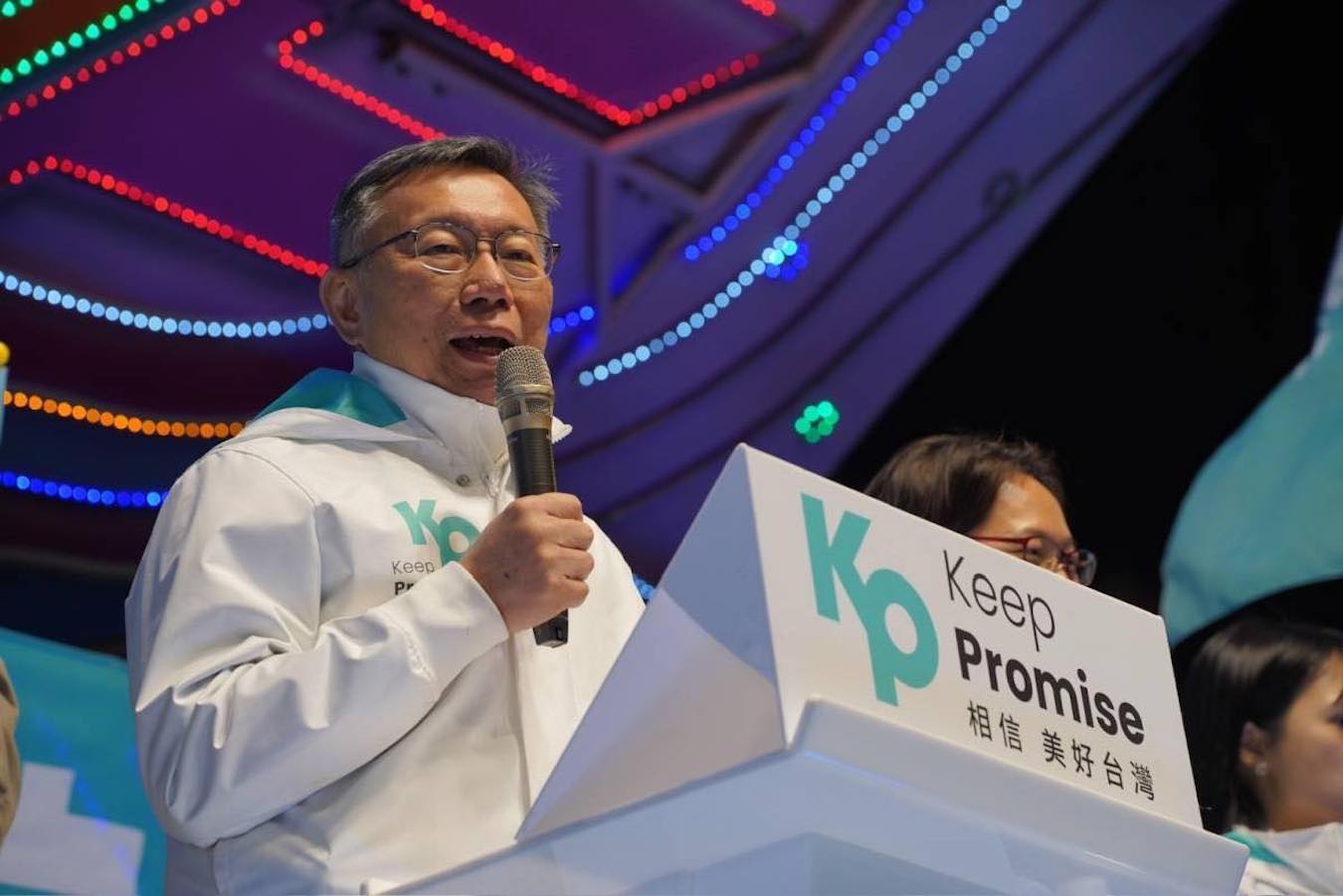by Brian Hioe
語言:
English
Photo Credit: Ko Wen-je/Facebook
PERHAPS UNIQUELY OF the parties currently vying in the Taiwanese elections, the TPP faces a significant challenge of its own–the gaffe-prone nature of its candidates and presidential candidate Ko Wen-je’s reputation for misogyny.
Ko has a reputation for venturing off script, as perhaps best known to the general public through the TPP’s failed negotiations on a joint ticket with the KMT. Though the consensus of the party was that they would not seek a joint ticket, Ko walked into a meeting room with the KMT leadership, and left having agreed to an agreement that the rest of the party did not want–the fallout was immediate, with a party spokesperson breaking down in tears in a widely publicized incident.
Other such incidents include publicizing the details of confidential meetings with the American Institute in Taiwan, the US’s representative office in Taiwan in lieu of formal diplomatic relations. Ko continued to publicize the details of such meetings in front of the media in spite of being warned by an aide, perhaps evidence the view that meeting with US officials was only for the sake of bolstering his election campaign.
Nevertheless, TPP vice presidential candidate Cynthia Wu has not proven much better. Wu was generally unknown to the public before the current election cycle, seeing as she only became legislator in 2022 to replace Tsai Pi-ru, who resigned after a plagiarism scandal but is currently running again for legislator in Taichung.
Wu has distinguished herself for her poor Mandarin speaking abilities in the vice presidential debate. Born in the US and mostly educated in English-language environments, Wu’s vocal stumbles are to the extent that sometimes she does not appear to know what to say in comments. During the debate, Wu often appeared to be reading off of a script, and on one occasion, responded to the wrong question. Wu also reverted to English on several occasions during the debate. As a result, some quotes of Wu went viral and were mocked widely online, such as extolling the virtues of whiskey brand Johnny Walker, and suggesting that the three vice presidential candidates get buffet together after the debate.
 Ko Wen-je. Photo credit: Ko Wen-je/Facebook
Ko Wen-je. Photo credit: Ko Wen-je/Facebook
Most damning may be Ko’s reputation for misogyny, not long after Taiwan saw a wave of #MeToo cases that originated in political circles, but then spread to academic and cultural circles. Ko has a long history of misogynistic comments, including denigrating gynecologists as “mak[ing] a living between women’s legs” and claiming that women were “scary” when not wearing make-up.
During another public incident, Ko referred to democracy movement activist and former Kaohsiung mayor Chen Chu as a “fat sow” and a “fat version of Han Kuo-yu.” Ko refused to back down from his comments, which led to much backlash on social media, and instead tried to justify them on the basis of his being a doctor.
Other comments by Ko suggest regressive views blaming women for Taiwan’s declining birthrate. Ko once stated, “That thirty percent of women over thirty are unmarried is a crisis of national instability”. Ko has even suggested that he believes women are not suited to tasks men are better for, such as claiming that, “If there are too many women in an industry, that reflects that that industry is in a downturn.” On another occasion, Ko commented that KMT Chiayi mayoral candidate Chen Yi-chen, a former journalist and television broadcaster, was “pretty” and that, consequently, she would be better suited to “working behind a counter” than running for public office.
The pan-Blue camp realizes it has an image problem with women, hence efforts by the KMT to remedy this, through emphasizing female support in recent campaign events. By contrast, seeing as the TPP’s political viability is deeply linked to the career of its founder, Ko–with many criticisms of the party as simply being a vehicle for Ko or reducible to Ko’s political career–it is harder for the TPP to get around this issue.
Yet the female politicians around Ko in the TPP have largely defended him. When a rally for housing justice in July that served as a de facto Ko rally was criticized for overwhelmingly male attendance, TPP legislator Lai Hsiang-lin defended this by claiming that women were likely home taking care of children. Wu also defended Ko from charges of misogyny by stating, “He loves his mother, if he was misogynistic, why would he pick me?” Ko has clearly surrounded himself with women only to try and allay his reputation for misogyny, then, seeing as he has surrounded himself with women that go to lengths to defend his past statements. This, if anything, may be emblematic of his worldview–seeing women only as secondary and supportive to men.

